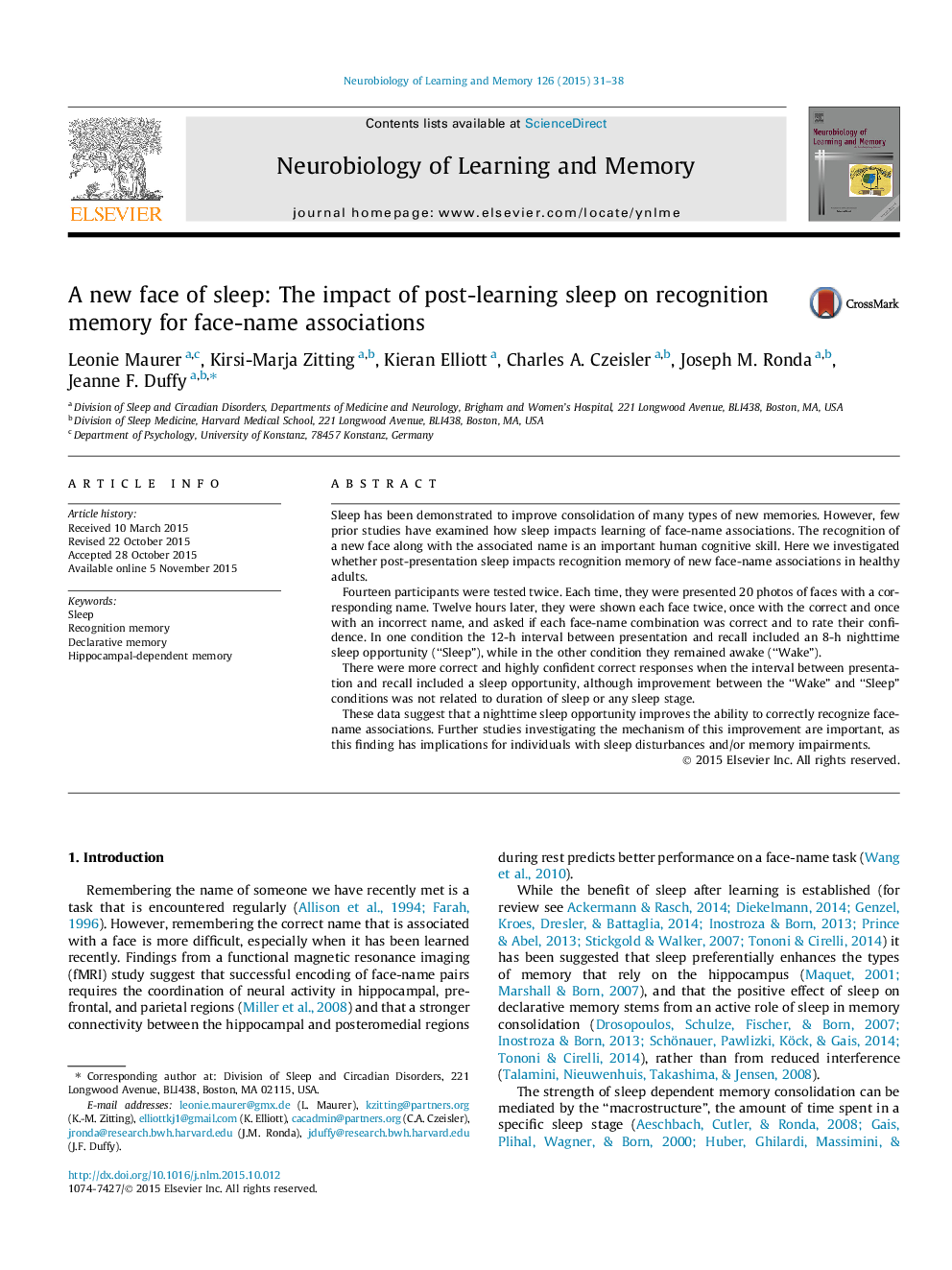| Article ID | Journal | Published Year | Pages | File Type |
|---|---|---|---|---|
| 936516 | Neurobiology of Learning and Memory | 2015 | 8 Pages |
•We tested whether sleep influences the accuracy of remembering face-name associations.•Presentation and recall were 12 h apart, one time with 8 h sleep and once without.•More correct face-name pairs were recalled when there was a sleep opportunity.•Sleep duration or sleep stage was not associated with improvement between conditions.
Sleep has been demonstrated to improve consolidation of many types of new memories. However, few prior studies have examined how sleep impacts learning of face-name associations. The recognition of a new face along with the associated name is an important human cognitive skill. Here we investigated whether post-presentation sleep impacts recognition memory of new face-name associations in healthy adults.Fourteen participants were tested twice. Each time, they were presented 20 photos of faces with a corresponding name. Twelve hours later, they were shown each face twice, once with the correct and once with an incorrect name, and asked if each face-name combination was correct and to rate their confidence. In one condition the 12-h interval between presentation and recall included an 8-h nighttime sleep opportunity (“Sleep”), while in the other condition they remained awake (“Wake”).There were more correct and highly confident correct responses when the interval between presentation and recall included a sleep opportunity, although improvement between the “Wake” and “Sleep” conditions was not related to duration of sleep or any sleep stage.These data suggest that a nighttime sleep opportunity improves the ability to correctly recognize face-name associations. Further studies investigating the mechanism of this improvement are important, as this finding has implications for individuals with sleep disturbances and/or memory impairments.
